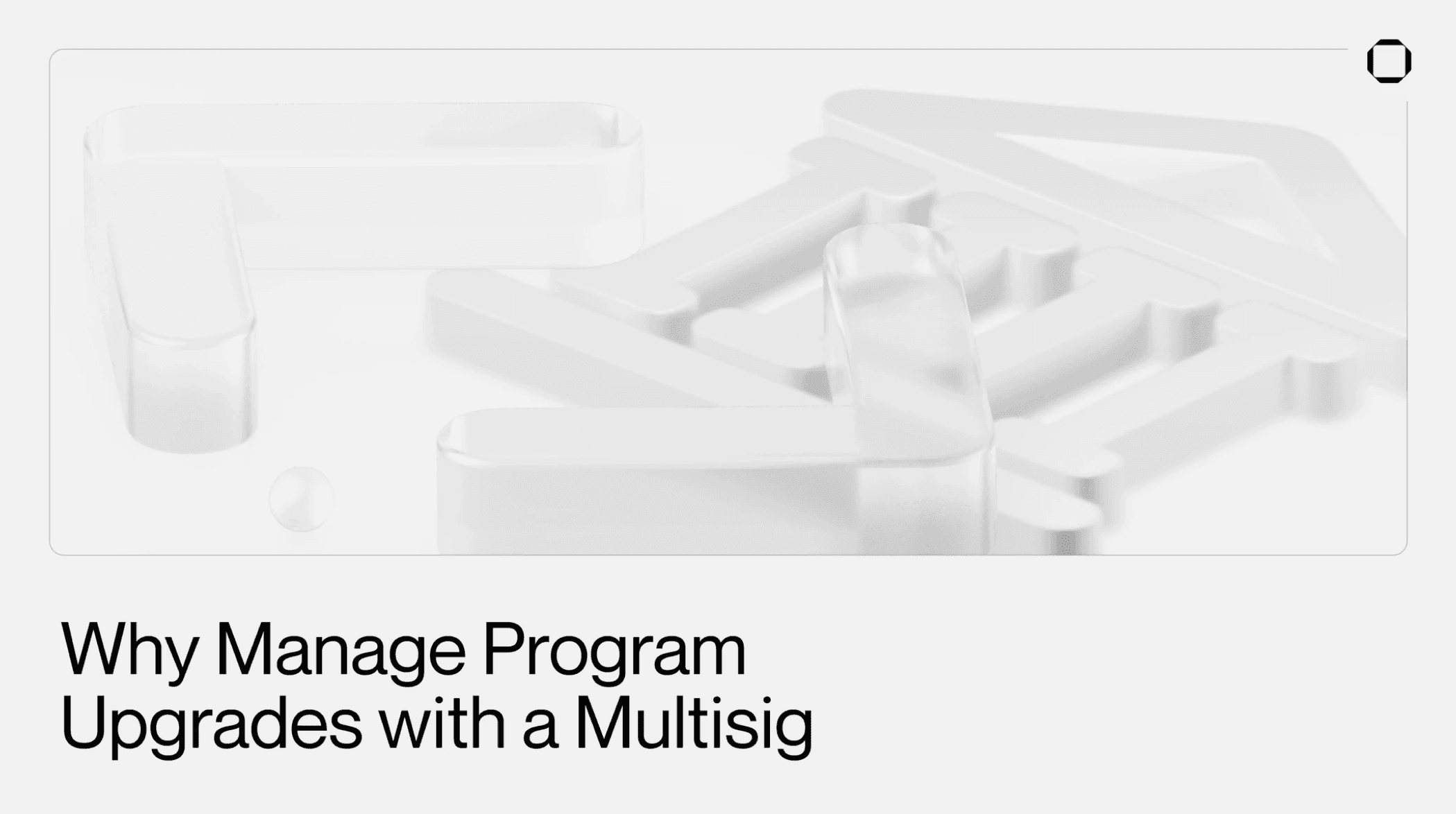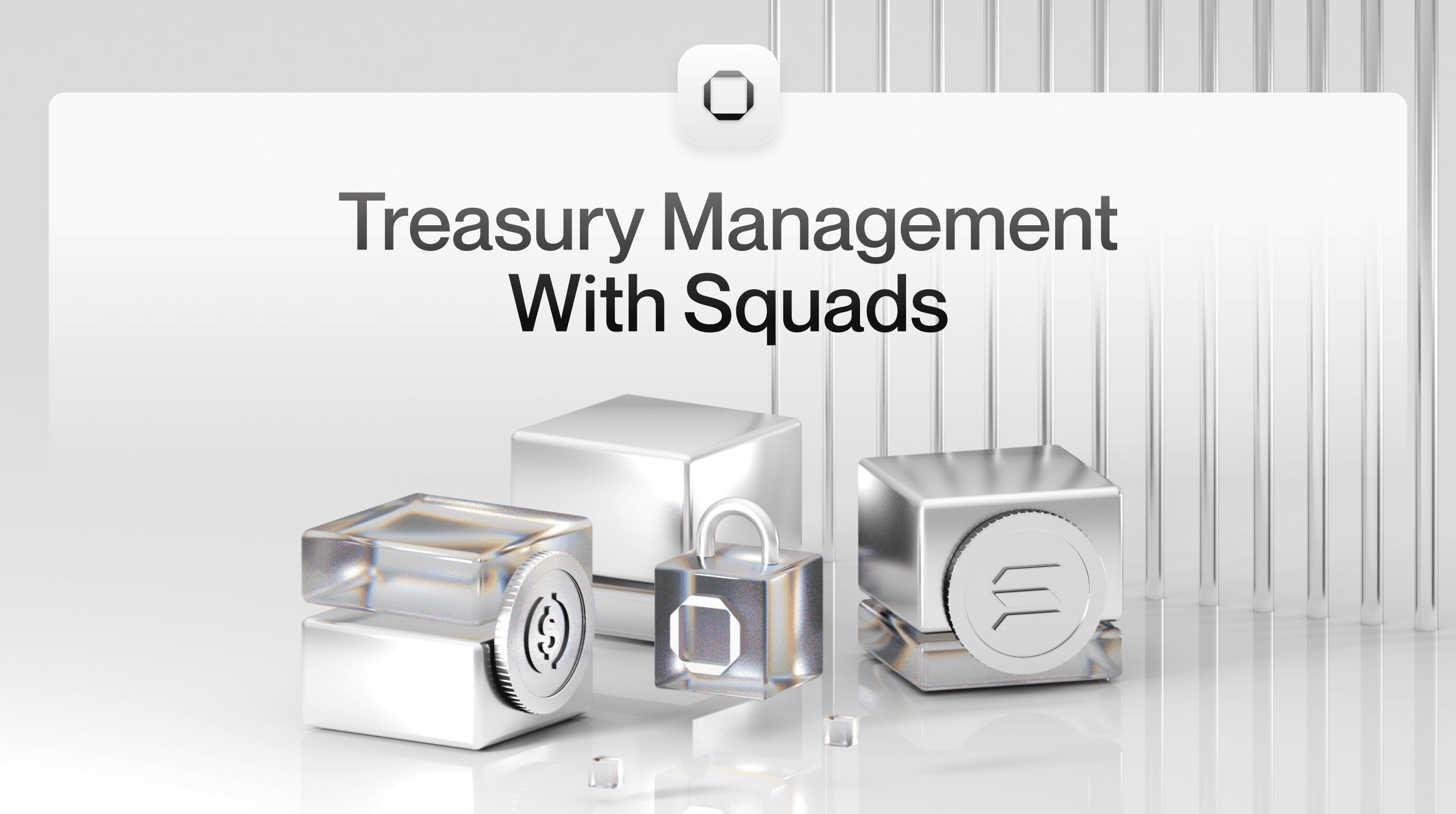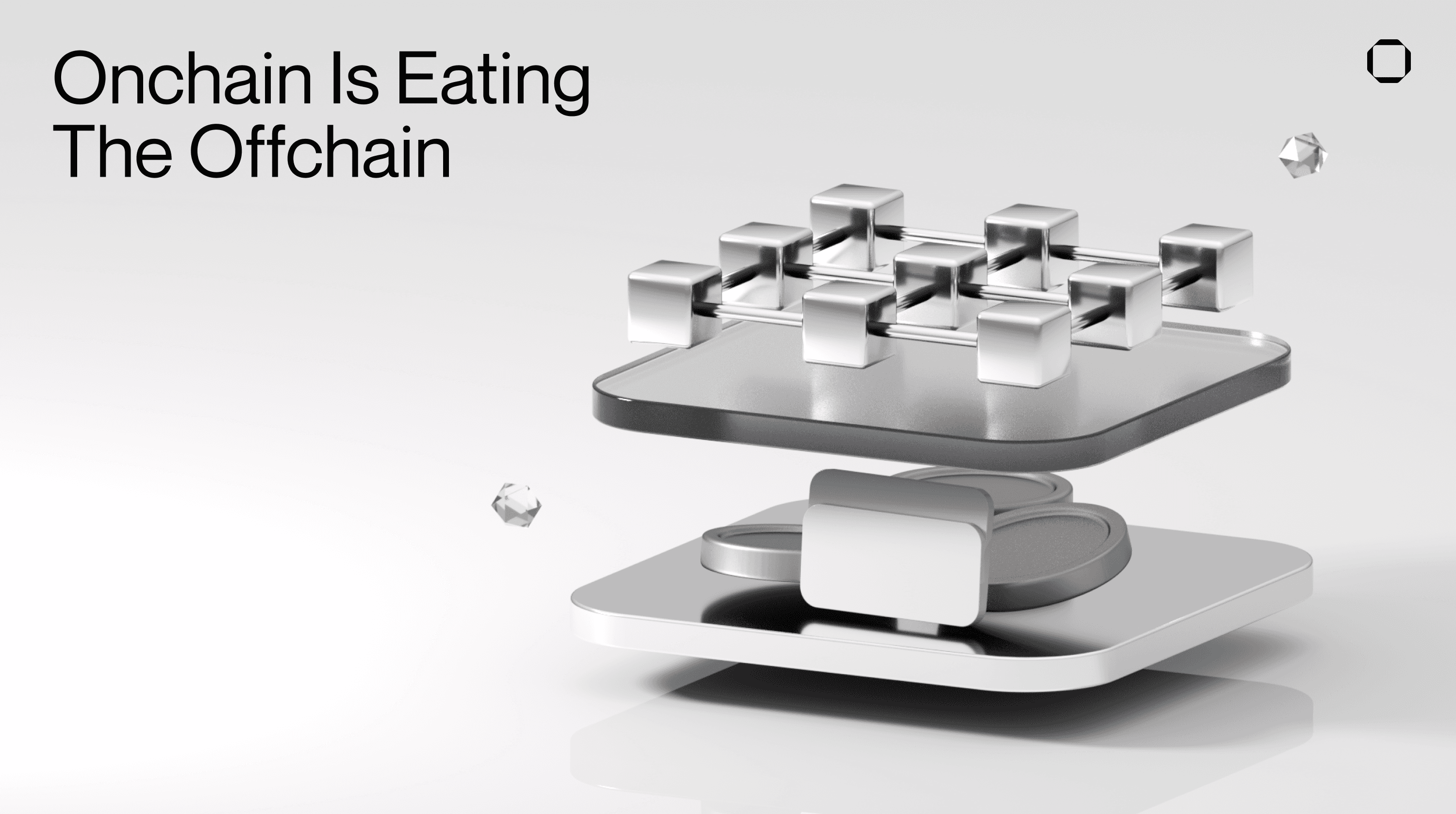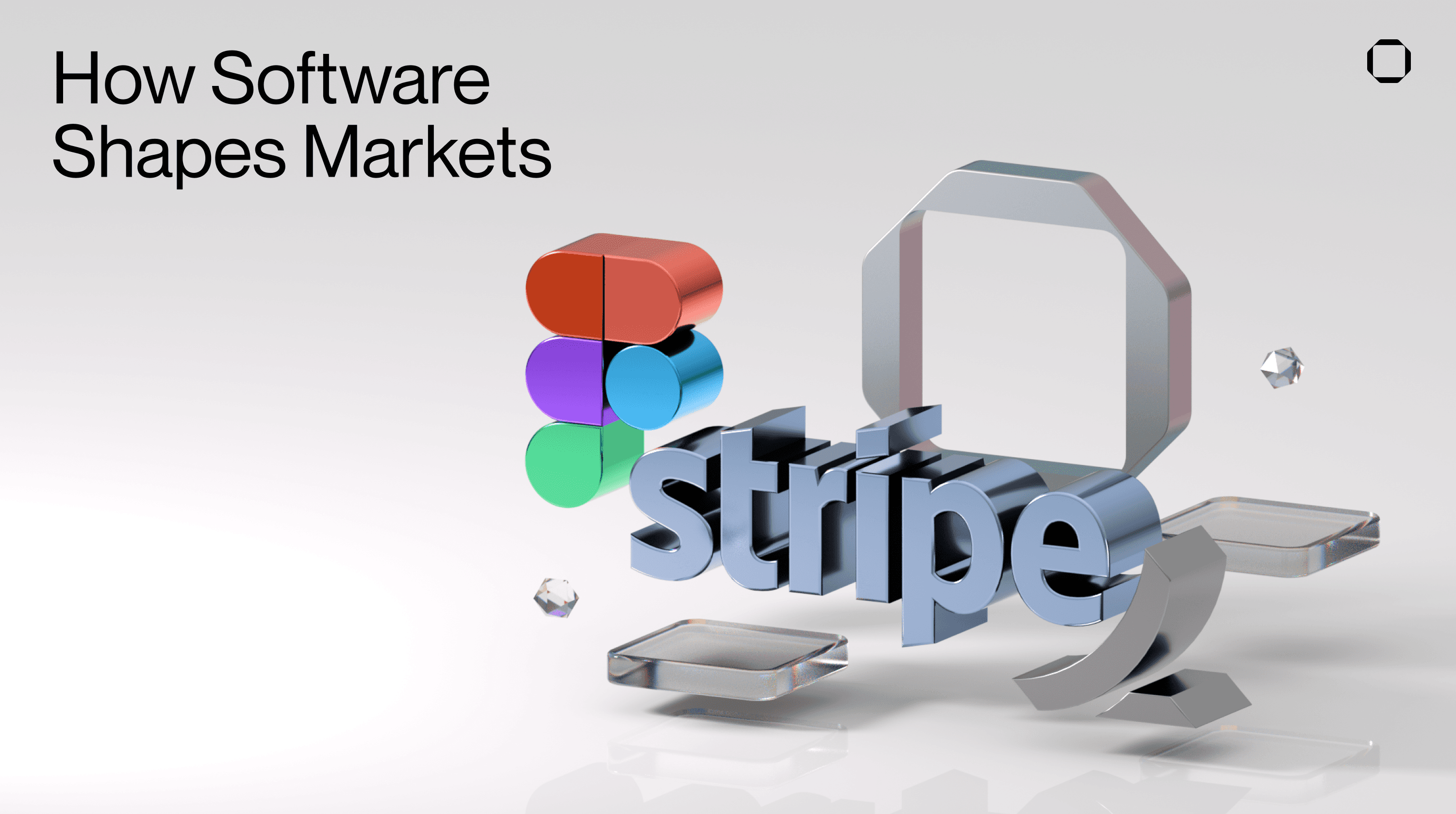Securely managing a protocol on Solana involves multiple aspects, but there are limited resources available to assist teams and developers in learning the best practices to be applied. One component that is not talked about frequently enough, and which almost severely damaged the Solana DeFi ecosystem during the FTX collapse, is the management of program upgrade authorities.
The security of Solana protocols and their user funds is directly impacted by how teams manage their programs. Most protocols on Solana are upgradeable, and program upgrade authority allows developers to effect any kind of changes to the protocol. That makes it a very valuable asset for any project, and mismanagement at this level can significantly affect both the protocol and its users.
This article will cover what to avoid when it comes to managing and keeping program upgrade authorities safe, as well as diving into the solution we built at Squads to make the process of upgrading Solana programs secure, robust and intuitive.
The Process of Upgrading Solana Programs and Its Risks
On Solana, most programs (smart contracts) are upgradeable, allowing protocols to easily push updates without requiring users to transfer funds to a new program. While this comes with advantages, it also presents tradeoffs that must be considered when developing on Solana.
In order to upgrade a program, developers must redeploy it. To do so, each program account on Solana contains an upgrade key that enables modifications to be made to the program. Typically, the authority key is the Solana account/address that originally deployed the program (though it can be changed to another key). Every time a transaction is created to update a Solana program, it needs to be signed by this authority key.
This is where a lack of education regarding program upgrade security becomes apparent: according to Neodyme, most Solana protocols use a simple cold wallet to manage their authority key, which poses significant risks if the account/address holding the authority key is stolen or compromised. Furthermore, a single wallet essentially gives “ownership” over the program to one entity, thus establishing a single point of failure.
Fortunately, beyond cold/hot wallets there are other solutions for managing program upgrades of a Solana protocol. One way is to move the upgrade authority to a DAO, where token holders can vote to make changes to the code. However, this approach is not considered the most optimal for projects that are not yet ready to give up control over the program to the community and transition to a DAO structure. From an operational standpoint it can also be difficult for the protocol to quickly fix bugs or issues without alerting the entire community, including potential malicious actors who could take advantage of the situation (particularly relevant at the early stages of protocol development).
A second solution, which is starting to take hold, is to move the upgrade authority to a multisig. A multisig (short for multi-signature) is a consensus mechanism that requires multiple parties to sign off on a transaction before it can be executed. It thus eliminates the risk of holding the upgrade authority with a single key, and enables team members to fix bugs or any issue safely and in a timely manner while maintaining a level of decentralization amongst the team.
Although many factors point to a multisig being the most secure and flexible solution, its use and adoption levels for managing upgrade authorities could be a lot higher in the Solana ecosystem. Many were alerted to that reality when the Serum case has unfolded during the FTX collapse.
Note that while burning the authority keys to make the code immutable is another option to consider, it could create additional risks if issues are identified post immutability. This approach works well for some protocols early on and should be the end goal for most, however the realities of shipping code and building in such a fast paced environment as crypto require teams to stay agile and be able to upgrade their codebase on a regular basis. For newer protocols, it is important for the codebase to stand the test of time in terms of security and resiliency before thinking of taking this step.
The Serum Upgrade Authority Case
In November 2022, shortly after the FTX incident, the Solana DeFi ecosystem narrowly avoided a potential disaster. The panic was sparked by Serum, which was a foundational protocol for the Solana’s DeFi ecosystem at the time, powering countless major projects including Jupiter, Raydium, and Mango Markets.
Several days after FTX suspended withdrawals, a security breach occurred on the exchange. While this could have been an isolated event, it turned out that the Serum program upgrade key was not under the control of Serum DAO, but rather was managed by a private key held by FTX. As a result, the exchange attacker(s) could also have been in position to potentially compromise the Serum code, as nobody at that time knew where and who was holding its authority key.
Since the identity of the individual holding the Serum authority key was still unknown during this time, and could potentially have fallen into the hands of the hacker(s), the Serum code could have been upgraded without notifying anyone. This would have included the ability to lock funds from the Serum order book or transfer them to a new wallet address, resulting in significant losses for users and the ecosystem. To prevent this, a fork of Serum was made with its upgrade authority managed by a DAO of contributors from the Solana ecosystem.
Despite the successful handling of the situation by the Solana community through the creation of OpenBook (Serum fork), it does not seem that the message has been widely spread. The ecosystem still heavily relies on using cold/hot wallets to manage authority keys, instead of splitting the ownership across several owners to decentralize the security of protocol programs amongst the team members/core developers.
In fact, many Solana projects continue to use insecure and centralized methods to manage their programs even after the Serum fork event.
Most Solana Protocols Are Still Using a Traditional Wallet to Manage their Authority Key
Despite the significant impact of the Serum incident, it appears that the importance of using a multisig to manage program upgrades has not been fully realized by the ecosystem.
As previously mentioned, the practice of using traditional wallets to manage program upgrades poses a significant danger to both the protocol and the users' funds, adding unnecessary risks. With over $250mln locked in various Solana protocols, this could have devastating effects on the ecosystem, endangering the benefits of composability, where one protocol being compromised can impact several others and their users.
Fortunately, there is a straightforward solution to this problem for projects - transferring the upgrade authority to a multisig, instead of relying on a cold/hot wallet. This approach offers numerous benefits for teams looking to manage their program upgrade authorities:
it greatly reduces the likelihood of the upgrade authority being compromised and thus prevents the loss of funds, as ownership is distributed among multiple addresses with thresholds to approve an upgrade;
all team members involved in managing program upgrades can be held accountable for their actions, ensuring that decisions are made in the best interests of the project;
the entire team, including non-technical founders, can view all changes to the code in a single interface, such as the one offered by Squads. This includes every update, the protocol's upgrade history, and notifications when an upgrade is being pushed through;
it prevents any single individual from exerting singular control over the protocol, as changes require approval from all team members added in the multisig.
The process is also straightforward, as solutions like Squads make it easy to change the upgrade authority through an intuitive interface. Additionally, users who prefer a safer way to perform the authority transfer can make a Safe Authority Transfer (SAT).
For a long time, Solana teams had no viable options to manage their programs with a secure and reliable multisig solution, which significantly contributed to the culture of using cold/hot wallets to manage upgrade authority instead of leveraging more robust self-custody tools. With Squads, that is no longer the case.
Squads: The Most Advanced Multisig Solution to Manage Program Upgrades on Solana
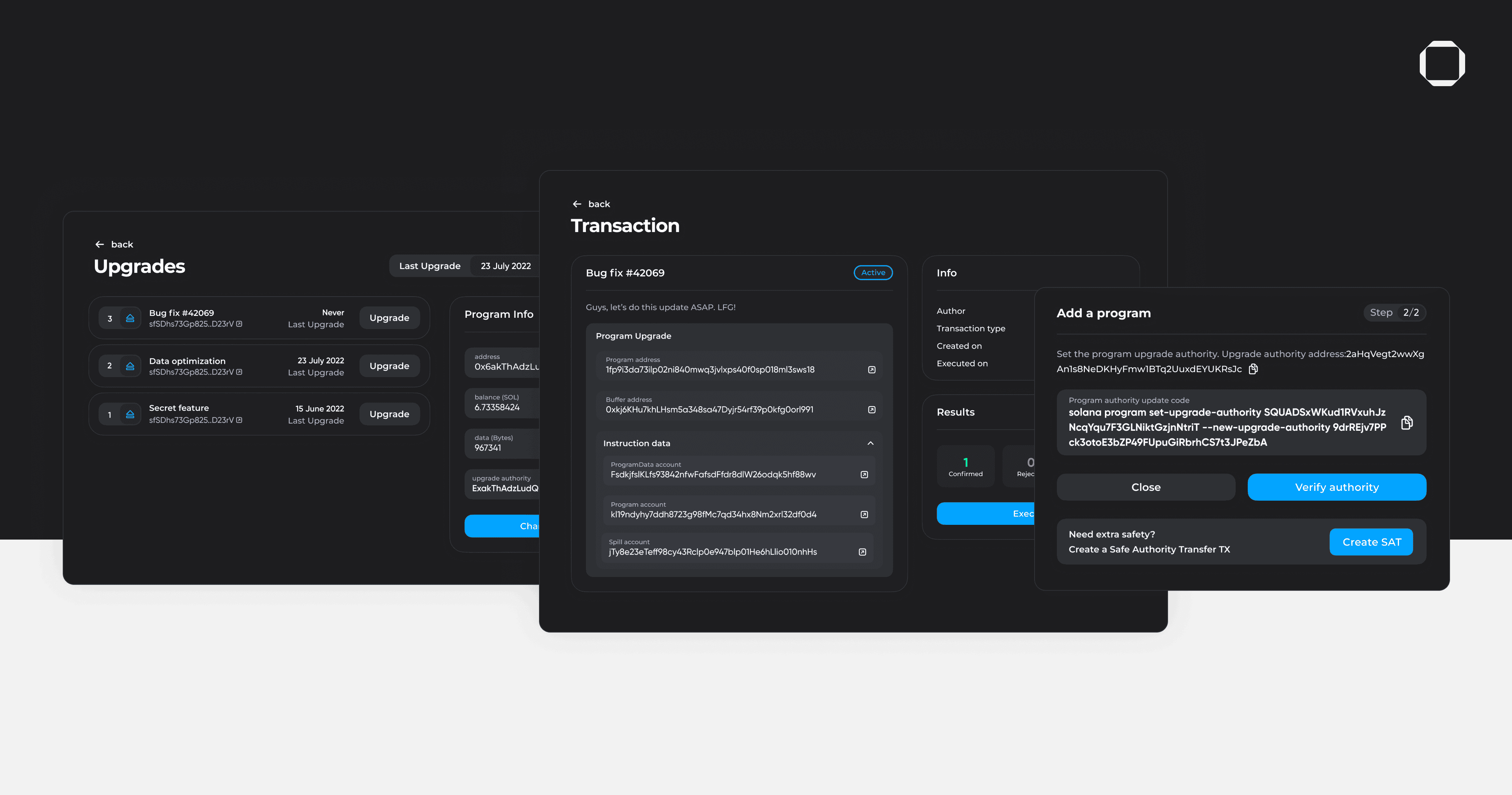
Enter Squads, a platform that streamlines the management of developer assets on Solana and SVM, allowing teams to easily manage program upgrades through a sleek interface. Squads is built on top of Squads Protocol, an immutable and formally verified (the first on Solana) multisig infrastructure. Open-source and multiple time audited by top-tier firms like OtterSec and Neodyme, every Squad is a multisig at its core, which ensures that any transaction or action taken within the platform requires the approval of multiple members of the team.
By using Squads, teams can transfer the upgrade authority of their Solana programs to a multisig wallet, eliminating the reliance on a single key for control. The process for program upgrades then occurs through the Squads platform, requiring multi-signature approval before deployment. Adding Solana programs to Squads is a straightforward process for teams and comes with an easy-to-use UX.
Several Solana protocols such as Raydium, Marginfi, Kamino, Jupiter, Francium are using Squads to decentralize their workflows and program management amongst the team, pushing the Solana ecosystem towards a more protocol security oriented culture. Over 85 programs have been delegated to a Squads multisig to date, proving its usefulness for teams.
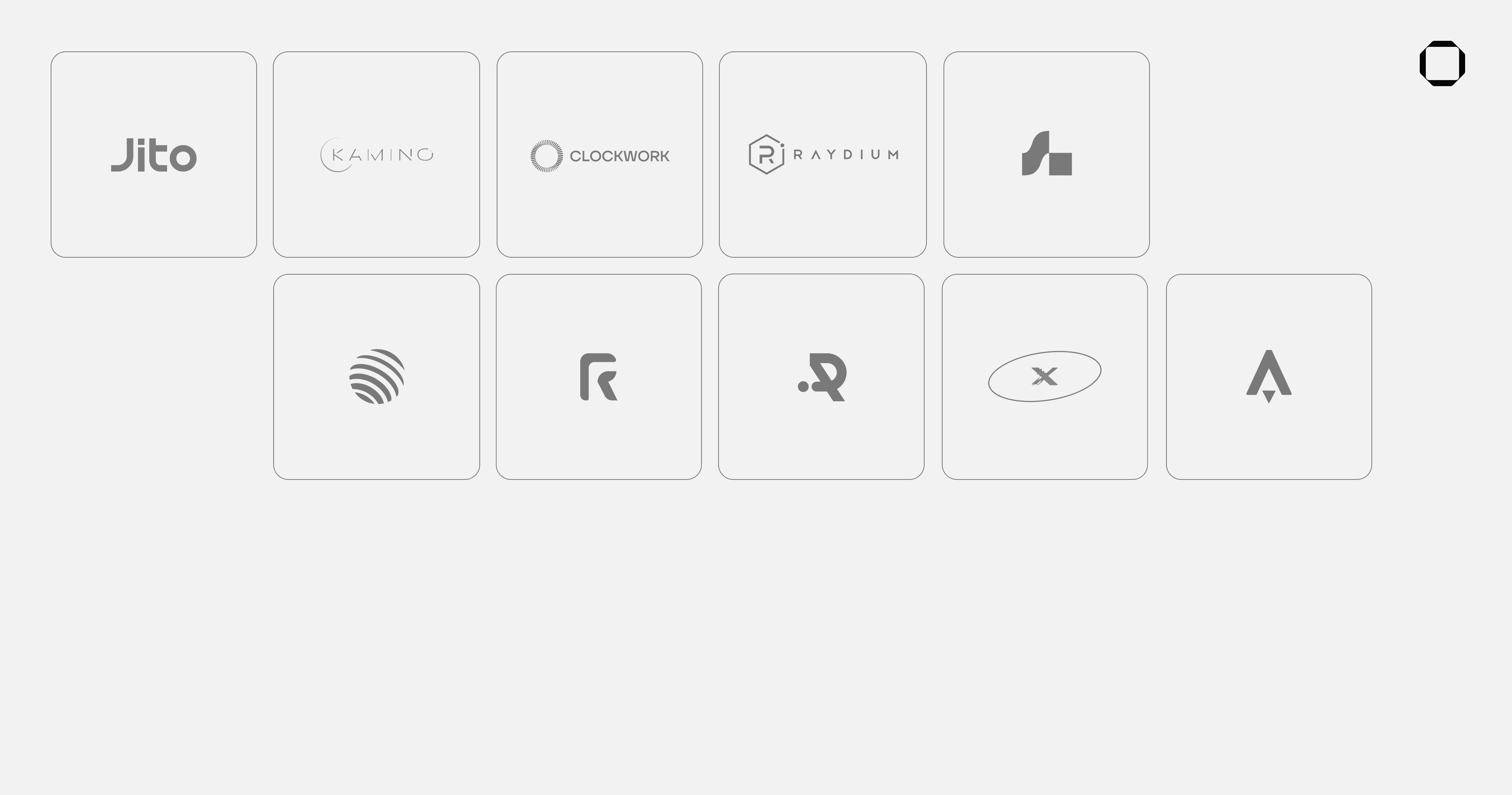
While many Solana protocols were unaware of better solutions to manage their programs in the past, it is now clear that change is necessary. Solana programs’ upgradeability should not pose a security risk to users, as this could cause a loss of trust and potentially drive users to other immutable solutions like those offered by Ethereum protocols. Fortunately, platforms like Squads offer teams the ability to secure their most valuable assets in one place, from treasury to programs, and eliminate the risks associated with relying solely on cold/hot wallets to manage authority keys.
Get Started
Create a Squad: https://v3.squads.so
Start Securing your Programs with a Multisig: https://docs.squads.so/squads-v3-docs/navigating-your-squad/developers/programs
Review the Code: https://github.com/Squads-Protocol/squads-mpl
Get your Questions Answered: https://discord.com/invite/YPXz64TrKs
